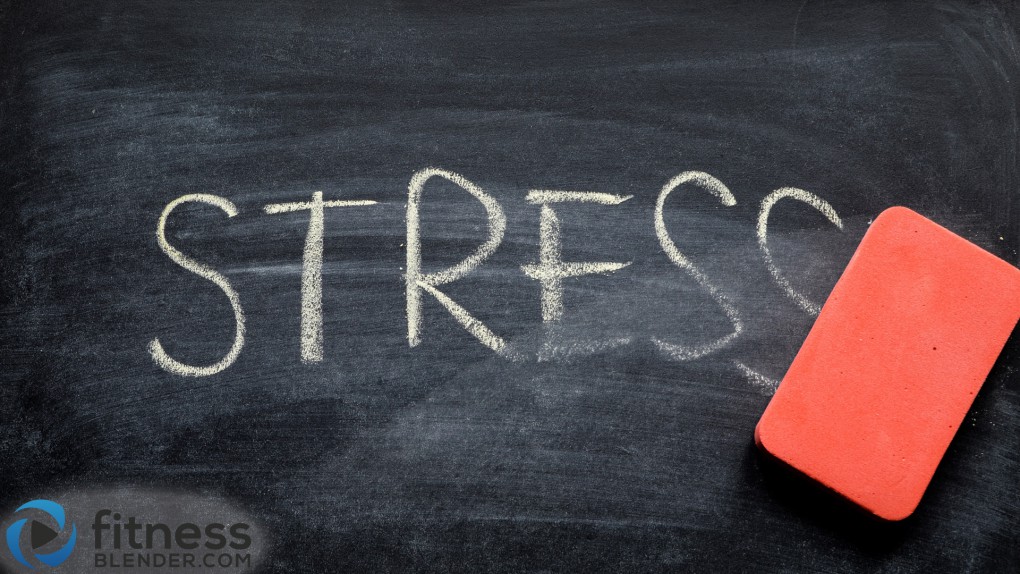What do work deadlines, sitting in traffic, paying your bills, grocery lines, raising your kids, and battling the bulge have in common? While there may be many suitable answers, one of the top common denominators is: stress! In the United States alone, seven out of ten adults report feeling some type of stress daily. Although people have different stressors, it is something that once it starts to affect us, is often hard to stop. What sets someone off may vary from individual to individual. Some people feel stress over the smallest things, while others have a much higher tolerance for stress. Regardless, stress can take a physical and mental toll on your overall health if it is not handled correctly.
The key to stress management is finding ways to relieve stress so that you can cope with any situation that unfolds. Luckily, there are many proven strategies to help us handle and decrease stress, it just might take a bit of trial and error to figure out what works best for you. For us, exercise has always been one of the many tools we use to help get a handle on the stress.
Let's face it, stress not only affects your brain, but with so many connections to your nerves, it can be felt throughout your entire body. For many, stress can manifest in sadness, anger, exhaustion, mood swings, insomnia, poor eating, panic attacks, and many other ways. The key to helping to reduce or manage stress is linked with learning coping skills and raising the endorphins in your brain to counteract these feelings. While exercise has been found to be a great outlet for stress, others turn to meditation, acupuncture, massage therapy, conventional therapy and music as other ways to manage stress.
Studies show that exercise can play a very significant role in helping stress reduction and management. As you engage in physical activity, your body reacts by releasing endorphins. These endorphins are actually hormones that work to fight stress. As the endorphins are increased, your brain can start to feel more clear, energized, and alert. These effects all play a role in allowing you to manage stress and find new ways to prioritize and cope with emotions.
Do you use exercise to help manage stress? If so, what type works best for you? Although any form of exercise that allows you to escape the stress and relax will work, there are several forms that have been found to be especially helpful. Perhaps one of these is right for you.
Strength Training - Strength training can have a profound impact on stress levels and mood. Just like other forms of exercise, strength training provides feel-good hormones, but lifting is one of our favorites because of the satisfaction you can get from really pushing yourself, and subsequently, feeling and seeing yourself get stronger. Try one of these free workouts: Squats and Deadlifts Workout - At Home Lower Body Workout or Upper Body Workout for Great Arms, Back, Chest, and Shoulders.
Aerobic Exercise - Participating in aerobic activities such as running, spinning, cardio, or dance also offer the benefit of an increased heart rate. When your heart rate goes up, your body will release an increased amount of endorphins, which allow you to “feel good” - both physically and mentally. HIIT workouts, in particular, may be a good way to keep the workout quick and maximally effective for healthy weight management and time efficiency. Try this abs & HIIT cardio workout.
Yoga - This type of exercise is considered a mind-body exercise, which in itself can strengthen your body's internal response to stress. Yoga often involves various poses with deep breathing, which allows you to learn to relax while strengthening your body and improving your posture. Check out Fitness Blender's 3 Day Flexibility Challenge.
Martial Arts - For many people, martial arts is the perfect way to get in shape, release energy, and reduce tension. Learning the techniques is helpful in keeping your mind occupied and away from stressors. The many forms of martial arts allow you to learn self-discipline while keeping you in shape.
Kickboxing - For many people under stress, there is a strong feeling of tension and anger. Taking up kickboxing is a great way to reduce your stress through a series of punching and kicking movements. Improving your balance, burning calories, and becoming more flexible are among the many benefits of this form of exercise. Check out Cardio Kickboxing and Bodyweight Cardio or Cardio Kickboxing & Abs - Kickboxing for Stress & Cardio Benefits.
Pilates - Despite the fact that Pilates is considered an anaerobic exercise, it is also a stress-relieving exercise to consider learning. Pilates focuses on mat exercises with a series of controlled movements. This workout format was created to improve strength, endurance, and flexibility. Here's a free Pilates workout: Lower Body Pilates Workout - Butt and Thigh Workout you may want to try.
Quick side note: meditation is probably not something that comes to mind when you think stress relieving "exercise" - but I just wanted to leave a note to encourage you to try and start a meditation habit, if you don't have one already. It takes some practice and may feel awkward at first, but it can help with stress, chronic pain, depression, etc. (of course, it does not replace a visit to your personal healthcare provider).
So, the next time you feel a stressful situation coming on, perhaps it is best to put on your sneakers and earn a Workout Complete with one of our 500+ free workout videos!
Do you have a favorite type of training for days where you are feeling particularly stressed? We'd love to hear what works for you!
